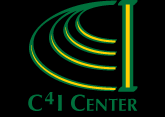
MENU
Symposium 2014 Home
Registration
2014 Agenda
C4I
Home
GMU C4I Center-AFCEA Symposium
May 20-21, 2014
SPECIAL SESSION: C4I CENTER GMU
_____________________
Forecasting Science & Technology (ForEST)
Dr. Jason Matheny
IARPA

May 21, 2014 at 13:00
ABSTRACT
IARPA's Forecasting Science & Technology (ForeST) Program is developing and testing methods for generating accurate and timely forecasts of significant science and technology milestones. Forecasting questions are generated from indicators within the scientific and patent literatures. Forecasts are then elicited from thousands of scientists and engineers, globally, using a combinatorial prediction market (SciCast.org) developed at GMU.
BIO
DR. JASON MATHENY is a Program Manager at IARPA, where he manages the ACE, OSI, and ForeST Programs. He previously worked at Oxford University, the World Bank, the Applied Physics Laboratory, the Center for Biosecurity, and Princeton University. He holds a Ph.D. in Applied Economics from Johns Hopkins University, an M.P.H. from Johns Hopkins University, an M.B.A. from Duke University, and a B.A. from the University of Chicago. He has published on biotechnology, neurotechnology, risk analysis, demography, economics, and bioethics. He is the founder of two biotechnology companies. His work was called one of the "ideas of the year" by The NewYork Times and has been featured in The Washington Post, Nature, The Economist, Scientific American, NOVA, and Wired, among others. He received the Intelligence Community's 2013 Award for Individual Achievement in Science and Technology.
_____________________
25 Years of Academic Contributions
to Military Information Technology
Dr. Harry Van Trees
C4I Center founder,
Director Emeritus

May 21, 2014 at 13:00
ABSTRACT
The GMU Center of Excellence in Command, Control, Communications, Computing, and Intelligence (C4I Center) was founded in 1989 by Dr. Harry Van Trees. At that time the prevailing acronym was C3I (without "Computing"). The Center has built a strong reputation based on its research and support in the wide variety of topics that form the C3I (now C4I) area. Dr Van Trees will describe from personal experience some of the Center's most significant activities and achievements and provide a vision for the next 25 years.
DR. HARRY VAN TREES received his B.S. from the U.S. Military Academy, West Point. He received the M.S.E.E. from the University of Maryland
and the Sc.D.E.E. from the Massachusetts Institute of Technology.
Prior to joining the faculty of George Mason University in September, 1988 as a Distinguished Professor of
Information Technology, and Electrical and Systems Engineering, Dr. Van Trees was President of M/A -
COM Government Systems, a high technology company in the defense electronics area and a world leader in
the development and production of modems, decoders, and satellite terminals for military satellite systems.
Previously, Dr. Van Trees served as Principal Deputy Assistant Secretary of Defense (C3I) and as Acting
Assistant Secretary of Defense; Command, Control, Communications and Intelligence. He also served as
Chief Scientist of the United States Air Force and Chief Scientist and Associate Director for Technology of
the Defense Communications Agency.
Prior to his government service, Dr. Van Trees was a Professor of Electrical Engineering at M.I.T. where he
published a three- volume set of books on Detection, Estimation, and Modulation Theory. The first volume is
used in graduate schools throughout the world, has been translated into Russian and Chinese, and is currently
in its 24th printing. The second and third volumes are widely used as references in the communications and
radar/sonar area. Dr Van Trees has recently published a second edition of his classic textbook in the field
of signal processing, Detection, Estimation, and Modulation Theory, Part 1. According to reviews, the second
edition is a thorough revision and expansion almost doubling the size of the first edition and accounting
for the new developments, thus making it again the most comprehensive and up-to-date treatment of the subject.
He has been a member of the Army Science Board, the Defense Information Systems Agency Scientific Advisory Group,
the Rome Laboratories Advisory Group, and the Board of Directors of the AFCEA Educational Foundation. Dr. Van Trees
is Director Emeritus of the Center of Excellence in C4I at the George Mason University. He initiated the
M.Sc. program in C3I (now C4I) at GMU.

